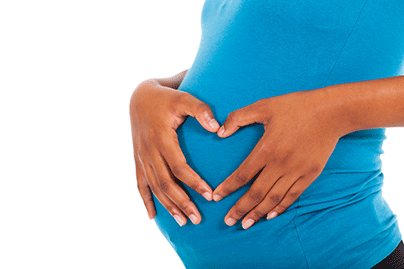Fertility refers to the ability to conceive children. Infertility is defined as the failure to conceive after one year of regular intercourse without the use of contraception.

It is estimated that the prevalence rate of infertility is 12% in the U.S.1 The National Survey of Family Growth estimated that 1.2 million women have sought medical advice regarding infertility in 2002 and 10% received infertility services at some point. A World Health Organization Study revealed that in developed countries, 37% of fertility cases were due to female factors, 8% due to males, 35% due to both, and 5% were unknown.
The causes/risk factors of infertility include:
Diet and lifestyle have a major impact in a couple’s ability to conceive. A Nutritarian diet has been very successful at increasing fertility.
ONLINE: All members of DrFuhrman.com can search the Ask the Doctor archives for discussions on this topic. Platinum and Diamond members can connect with Dr. Fuhrman by posting questions in the forum. Not a member? Join now.
IN PERSON: Book a stay at Dr. Fuhrman’s Eat to Live Retreat in San Diego, California. With options ranging from one, two and three months (and sometimes longer) you will be under Dr. Fuhrman’s direct medical supervision as you hit the “reset” button on your health. For more information: (949) 432-6295 or [email protected].
EVENTS: Join Dr. Fuhrman for an online boot camp, detox or other event. During these immersive online events, you’ll attend zoom lectures, follow a special meal plan, and have access to a special, live Q&A session with Dr. Fuhrman. Learn more about events.
The following are sample questions from the Ask the Doctor Community Platinum and higher members can post their health questions directly to Dr. Fuhrman. (All members can browse questions and answers.)
My husband and I are planning to start trying for our first baby. What would you advise regarding supplements for someone on a Nutritarian diet? Do you find that your patients ever get too thin on this diet to be successful conceiving? I am currently a muscular 147 pounds, 5 feet 6 inches. I feel I need to lose 20 pounds (28 according to ETL) but am worried I will have conception issues.
The general dietary protocol when following a Nutritarian diet for the overweight recommends about one to two ounces of seeds/nuts per day. For pregnancy and nursing I recommend at least 2 ounces a day of seeds and nuts (higher fat diet).
It is okay to consume just 1 oz. for now, and then as you approach a healthier, lower weight, start to increase the seeds in your diet to prevent your weight from dropping below 125 pounds. Likely because of your muscular build and exercise, your body will level off at such a favorable weight. I think if you do a body fat analysis, you will find that you will be much healthier at a lower weight and body fat percentage.
Lots of women have found that eating this way increases their fertility and I have seen many people who could not get pregnant finally conceive. Many infertility doctors even recommend my books for their patients trying to get pregnant.
As far as supplements go, you should take, daily, two Gentle Prenatal and 0.75 ml DHA/EPA Purity.
My wife and I have been trying to conceive for quite some time now without success. At the last check-up we were both within normal range on all things. My wife recently went to see a doctor who advised her to take two supplements which may improve chances of conceiving: Co-Q10 and DHEA. What is your view on whether these supplements are helpful?
In general, what supplements, if any, do you recommend for couples trying to conceive (for men as well as for women)?
I do not recommend DHEA, but CoQ10 is fine, though neither will likely increase her likelihood of conceiving. DHEA is a steroid hormone that should only be prescribed in a deficiency or autoimmune illness. Your body makes plenty of CoQ10 on a Nutritarian diet and though it is not dangerous to take it, it is a waste of her money.
A Nutritarian diet, with adequate intake of G-BOMBS and healthy fats from nuts and seeds, will foster fertility. As far as supplements go, your wife should take my Gentle Prenatal vitamin which includes 1500 IU vitamin D and DHA/EPA Purity and you should take my Men’s Daily and DHA/EPA Purity, then you will assure adequate Vitamin D, B12, iodine, zinc, and in her case a little extra iron. The small amount of DHA/EPA can assure adequacy because we want to avoid fish with the typical contaminants it usually contains, such as dioxin, other PCBS, and mercury.